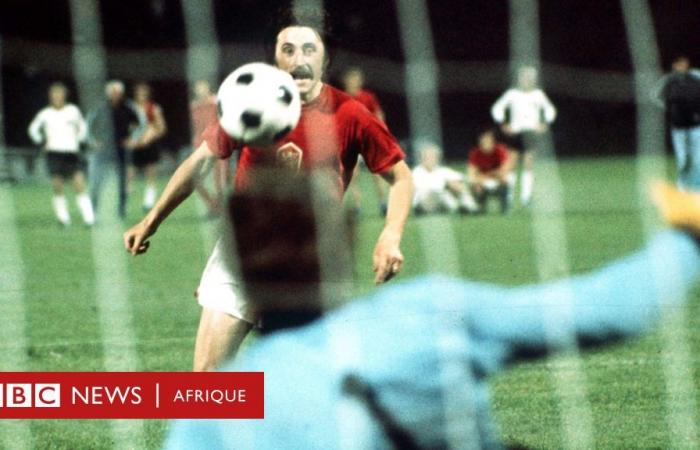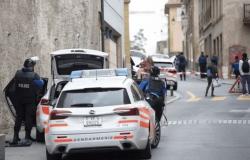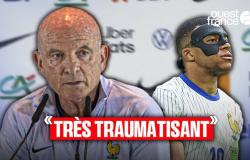- Author, Mike Henson
- Role, BBC Sport
-
15 minutes ago
Ultimately, the Germans’ eagerness to go on vacation changed history.
The Euro 1976 final against Czechoslovakia was not to be decided on penalties.
West Germany, the reigning European champions and World Cup winners, were heavy favourites.
Although Czechoslovakia held on until extra time, the original plan called for a replay two days later. Welsh referee Clive Thomas had been asked to delay his return from host country Yugoslavia to cover any eventuality.
But a few hours before the match, the plan changed.
“It was a request from the German Football Association,” recalls Antonin Panenka.
“They were saying their players had already booked a holiday, blah blah blah, and asking if penalties could be taken straight away instead of being replayed.”
Czechoslovakia thinks that as an outsider, it has a better chance of winning in a penalty shootout than in a second match, and therefore accepts.
Panenka, elegant playmaker, mentally checks his plan once again.
Everything is in order. No modification is necessary, no doubt is admitted.
The scheme he has been preparing for two years, which will make him famous and infamous, hero and enemy – whether it succeeds or not – is ready.
Back home, Panenka took part in another almost daily penalty shootout.
After training with his Prague club, Bohemians, Panenka and goalkeeper Zdenek Hruska stayed behind to practice penalty kicks.
It was a very personal duel. Panenka has five penalties – he has to score all five, Hruska has to save only one. Whoever lost had to pay for his beer or chocolate at the end of training.
“I was paying him constantly,” Panenka says.
“That’s when I realised that when I was going for it, the goalkeeper was waiting until the last second and was playing by diving to the left or right.
“I thought, ‘What if I sent the ball almost directly into the center of the goal?'”
Panenka tried. He found that by introducing another possible penalty and some hesitation into Hruska’s mind, he won more, spent less and still received his post-practice reward.
The experience could have ended there and remained an invisible spectacle. But Panenka realized his new technique was much more than that. He had discovered a legitimate tactic for the 12 yards.
Over the next two years he tested it on bigger and bigger stages. First in training, then in friendlies and finally, the month before Euro 1976, against local rivals Dukla Prague in a competitive match.
Each time, the system works and his conviction grows.
“I didn’t hide it,” says Panenka.
“Ici [en Tchécoslovaquie]people knew it.”
“But in Western countries, in big football countries, no one was interested in Czechoslovak football at all.”
“They might have been paying attention to some results, but they weren’t watching our matches.”
For Sepp Maier, there was no laminated cheat sheet or instructions whispered by an analyst behind the scenes.
Crouching on his goal line and staring at Panenka, the West German goalkeeper had only his instinct to guide him.
Maier’s teammate Uli Hoeness had fired the previous penalty kick over the bar. This is the first miss of the penalty shootout, while extra time ended with a score of 2-2.
Immediately, the issue became sudden death and very important. If Panenka scores, West Germany is beaten.
Panenka’s run-up is long and fast. He seems to want, like Hoeness, to kick the ball behind him.
Instead, on the most important kick of his life, he relies on his usual trick. With a clever tickle, the ball floats into the center of the goal. Panenka’s arm is in the air before the ball hits the net. Maier, disconcerted, gets to his feet, but only in time to glance apologetically at Panenka, who cartwheels away in celebration.
“None of us could believe we were European champions,” Panenka said. “It was like Alice in Wonderland.”
The situation was just as surreal in Prague. Their European Championship victory came eight years after the Prague Spring, when a Soviet-led horde of tanks crossed the border and crushed attempts to soften the country’s communist system.
Since then, large public gatherings have been rare and are only permitted for the orchestrated reception of foreign dignitaries. But when the team arrived in Czechoslovakia, the emotion and the numbers were not restrained.
“No one expected that so many people would come and welcome us so warmly,” Mr. Panenka recalls.
“When a head of state came, the roads were lined with young people holding parade sticks.
“But it was a bit forced. This time, they all spontaneously came to greet us and show their gratitude. I had never experienced anything like this before. It was one of the best moments of my career of a footballer.
Panenka’s decisive and distinctive penalty put him in the center of attention. Not only for the public, but also for the authorities.
Czechoslovaks have been undergoing a process called “normalization” since their attempt to deviate from the Soviet model. The reshaping or elimination of dissident elements goes far beyond the political framework.
Just three months before Euro 1976, Czechoslovakian secret police arrested a psychedelic rock band and other underground musicians, fearing that long hair and countercultural lyrics alone would fuel the revolution.
Panenka’s penalty – struck with a disregard for convention and casual panache – was certainly not “normal”.
Repeating his feat on a stage of such magnitude entailed a significant personal and sporting risk.
“I never thought that politics and sport, or politics and football, could be linked in this way, but it is true that some have thought of it that way,” Panenka says.
“When we talked about it in political circles, we could see my contempt for the political system.”
“If I hadn’t converted the penalty, it probably would have had consequences for me, a sanction or another problem.”
The fact that Panenka found the back of the net spared him awkward questions and a possible new career in a factory or mine.
But in scoring, he made another enemy.
The defeat is an unfamiliar feeling for Maier, who is part of a Bayern team that won its third consecutive European Cup the previous month. The humiliation is unfamiliar.
The Scotsman’s report from Belgrade describes how Panenka’s kick shattered two preconceptions: Czechoslovakia’s collective, faceless style and Germany’s inevitable skill, mastery and victory. West and Maier.
“The old, harsh discipline of Czechoslovakia is still evident,” writes Ian Wood.
“But the cult of personality has gained more than a tenuous hold and nowhere was the new zest more perfectly illustrated than when Panenka gave the Czechs the championship title by knocking the hapless Sepp Maier to the ground with a supremely impudent dummy.”
Elsewhere, the qualifiers are harsher than that of “unfortunate”.
“Some foreign journalists, especially Western ones, insisted that I had made fun of Maier, called him a clown and other things of the same kind,” Panenka explains.
“It wasn’t true. For me it was the easiest way to score a goal. But Maier believed what those journalists wrote about me making a fool of him.
Every time he heard the name “Panenka” it was terribly unpleasant for him and he reacted very irritably.
“He didn’t speak to me again for the next 35 years.”
Photo credit, CTK/Krumphanzl Michal
But over the decades there has been a thaw.
Since the original, the “Panenka” has been repeated and proven to be a genuine – albeit high-risk – tactic by some of the biggest names on the most important occasions.
Zinedine Zidane scored one in the 2006 World Cup final against Italy. England fans will remember that Andrea Pirlo fooled Joe Hart in the Euro 2012 penalty shootout. Lionel Messi, Cristiano Ronaldo, Thierry Henry, Neymar and Zlatan Ibrahimovic all did it.
Maier is no longer an isolated scapegoat. Many goalkeepers have been beaten in the same way. The year 1976 was marked by a setback, the stigma has disappeared. Mostly.
Maier declined an interview request for this article.
“I think our relationship has been quite normal lately,” Panenka says.
“The last time I met him was four or five years ago. There was a press conference organised by the German side here in Prague, and I could see that he was not annoyed or angry with me. We had a beer and played golf together.”
“He could even smile about the penalty. When he saw me for the first time on that last trip, he waved at me and drew the trajectory of a chipped ball with his hand.”
Even Panenka’s relationship with his 1976 penalty is complex.
His dazzling set pieces, his blind shots, his scalpel passes go unrecognized, buried under the glory of his own creation.
“I’m a little torn about it,” he finally said of the 1976 penalty.
“On the one hand, I am proud that the penalty was invented, that it is so famous and that it is repeated by the best players. But it is true that every time Panenka’s name is mentioned, everyone thinks of the ‘Panenka penalty’.
“On the one hand I’m proud, but on the other hand I’m a little bit unhappy that this penalty has erased everything I wanted to give to the viewers – a lot of passes, goals, chances that I created.
“In a way, the penalty killed my career.
If he found himself in that situation again, facing Maier, with the European Championship on the line, would he dare do the same thing again? Or would he play fair with a shot that would not define him forever for so many others?
Panenka’s answer is categorical.
“Of course I would do the same thing! Of course! There’s nothing else I can do.”






